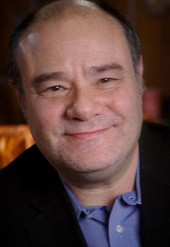 June 24, 2013.
June 24, 2013.
The Supreme Court will be ruling on marriage equality in the next few days. Whatever the outcome—and it would surprise most court watchers if it were not at least somewhat supportive—the case for marriage equality has already taken center stage as the civil-rights issue of the day.
Unless the Supreme Court rules that marriage is an outright civil right for LGBT people, and the chances of that are slim, this battle will go state by state, and therefore will go on for possibly decades. Decades, you say? Think Mississippi and Alabama, think Ohio and Pennsylvania, which still don’t have statewide nondiscrimination laws.
So a victory of any sort at the Supreme Court is not the end of the fight; it’s just one battle that was started over 40 years ago when the Rev. Troy Perry and Metropolitan Community Church applied for “same-sex marriage licenses around the nation.” Take a look at how much work still will need to be done by just looking at Perry’s actions.
Two of the states where his church members applied for marriage licenses were California and Utah. We all know that California will shortly have marriage, with or without the Supreme Court, but Utah? That is a place that will need lots of work—read: education.
And that is where we sometimes miss our lobby opportunities. Using Utah as an example, the strongest group in that state are the followers of the Church of Jesus Christ of Latter-day Saints, the Mormons. They control the political system and are viewed by many as antigay. They certainly were the major funders of Proposition 8 and other ballot initiatives. The question is, like with some other religions, can they be educated to change their position and, thereby, if not support marriage equality, at least not fight against it? We’re not asking them to change, but to accept our civil rights.
That change might have already happened. The Mormons were one of the first religious organizations to announce they’d accept the new Boy Scouts’ rule on nondiscrimination. It’s time to start to support LGBT Mormons, Catholics and others who are trying to educate their religious orders rather than making them feel as though they are outcasts.
Our job as activists is to advance progress, even in the religions that have oppressed us for thousands of years. That is how change happens. And those LGBT fighters in the Mormon, Catholic and other churches are heroes who should be supported by the rest of the community.

